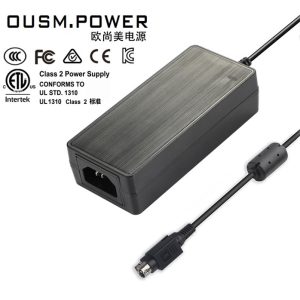How to Choose a Deposition Reporter Service

Deposition Reporter Service
When choosing a Deposition Reporter Service, it is important to determine whether the rate includes transcription, videotaping, and conference room use. Most states require a basic rate, which includes an original and one copy of the transcript.
Some states also require condensed transcripts and keyword indexes, while others require both types of transcripts. You may be required to pay extra for videotaping and time stamping. Also, it may be necessary to have the written transcript synchronized with the video.
There are several important factors to consider when selecting a Deposition Reporter Service, including price and experience. If you need to hire a court reporter, check if they are ethical and competent. Make sure to find out whether the reporter is certified and what the deadline is for signing the transcript.
Also, be sure to ask about video teleconferencing and hyperlink transcripts, as these can significantly affect the quality of the transcript. A Deposition Reporter Service should be able to provide both options, including interactive streaming and hyperlink transcripts.
When it comes to technology, the Deposition Reporter Service should offer the latest developments in the field. NAEGELI uses technology to synch audio to the transcript, allowing for real-time issue coding and annotations. Audio files are also stored on a USB for easy access and storage. Additionally, the transcript contains scanned exhibits and the deponent’s photo on the cover page. This all helps save the clients time and money.
Deposition Reporter Service
If you’re contemplating hiring a Deposition Reporter Service for your deposition, there are several important things to keep in mind. These include costs, the duty of confidentiality, and equipment specifications. Additionally, a deponent must sign the transcript within a certain time frame.
Read on for more details. This article will provide you with the details you need to make an informed decision. The last paragraph of this article will provide tips on selecting the best Deposition Reporter Service for your needs.
Costs
A deposition reporter service may cost a considerable amount of money, but the value it brings far outweighs the cost. These costs can be managed in many ways. By establishing a centralized source of communication for scheduling and billing, the costs of depositions are easily manageable.
Spherion’s integrated case management system provides a single point of access for all case-related depositions. To find out more, contact us today.
Copying and delivering the transcripts are two major costs for depositions. Although some jurisdictions have standardized the number of lines per page, the majority do not. As a result, copy costs can range from twenty cents per page to cover page. The total number of pages in a deposition may be higher or lower than you would expect, depending on the type of document and the font size used. Depending on the number of pages in the transcript, additional copies of the transcript may be charged at a higher rate.
Duty of confidentiality
A court reporter’s duty of confidentiality extends beyond a single deposition. The confidentiality of a deposition is essential to the success of a lawsuit, and a deposition reporter’s duty is to protect confidential information in all depositions.
This duty of confidentiality applies to information in the transcript of a deposition, such as the names of attorneys or other parties involved in the case. Unless the deponent or all other parties present give permission, the reporter cannot disclose this information to a third party.
When a court reporter attends a deposition, they must maintain a high level of confidentiality. In addition to the professional standards of the service, the reporter must observe the highest level of ethical behavior, including adherence to the highest ethical codes of conduct.
The confidentiality of the transcripts is essential to preserving the integrity of a case. Leaking information can damage the credibility of the defendant’s case and undermine the trial.
Equipment specifications
The equipment needed to provide high-quality audio and video for depositions is a video camera, microphones and a computer. Lavalier mics, which are attached to people, are the most commonly used recording devices. It is not recommended to use the camera’s internal microphone.
A backup audio source is an omnidirectional table mic. Video teleconferencing requires specific equipment and can affect the quality of the transcript. Depositions may require reporters to provide an interactive real-time stream and hyperlinked transcript.
When capturing video depositions, court reporters have certain standards. Video recordings should be captured with a high focal length ratio and recorded at standard play speeds to provide the best representation possible. Although most courts accept any format for video recording, you may want to consider a backup recording that meets certain legal requirements.
This is also important for video quality. If you plan to record audio during depositions, you’ll need to consider the backup recording.
Costs of remote depositions
A remote deposition is significantly cheaper than a traditional in-person proceeding. For out-of-state depositions, attorneys must pay for travel expenses, hotel accommodations, and conference rooms, while local cases are free from these expenses.
In addition to saving on travel, attorneys will enjoy not having to worry about scheduling a deposition that would take up too much of their time. A remote deposition also means faster litigation for both parties.
Court Reporter Streaming technology allows for full team participation during the deposition, eliminating the need for travel expenses. Since everyone can participate from home, this type of service has many benefits. The remote deposition process offers face-to-face meeting benefits without the added expense of travel. The cost of a remote deposition is taxable only if the losing party prevails. With streaming technology, the deposition takes place over a secure Internet.




